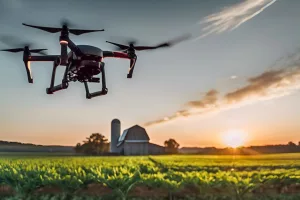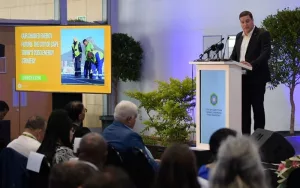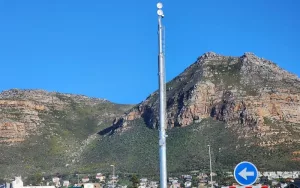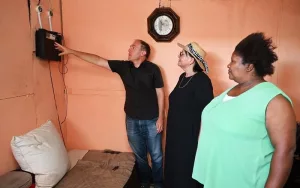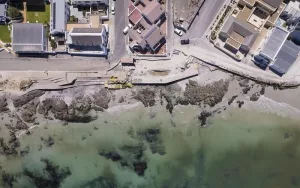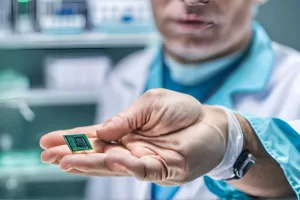The libraries in the City of Cape Town are embracing the digital world and introducing new technologies to combat power disruptions such as loadshedding. They are introducing Uninterrupted Power Supply (UPS) units to ensure WiFi access remains uninterrupted during power outages. Libraries are also broadening their digital presence, incorporating etablets loaded with educational apps and ebooks to foster critical digital literacy skills. These adaptations showcase the libraries’ adaptability and resilience in navigating towards a future that blends tradition and technology.
The Western Cape province in South Africa is leading a pioneering energy revolution to eliminate load shedding, investing R7 billion over the next three years. This commitment includes a significant contribution from the City of Cape Town and other municipalities, as well as various solar and wind projects. The province is encouraging private households and businesses to install embedded generation, and their progress towards energy independence could serve as a model for others to emulate. Despite challenges, their resilience, innovation and collaboration foster hope for a selfsufficient, energyresilient future.
A groundbreaking study at the University of Cape Town (UCT) explores the intersection of artificial intelligence (AI) and education, using ChatGPT to create an orthopaedics textbook with medical students. This approach not only enhances students’ digital literacy skills but also fosters a sense of ownership and participation in their education. The study also highlights the need for inclusive and diverse AIgenerated content and emphasizes the transformative potential of AI in education. UCT’s innovative research opens up new possibilities for enriched learning environments through the integration of technology and teamwork.
The City of Cape Town has embraced digital transformation to enhance its public services, with a new online reservation system for Motor Vehicle Registration and Licensing offices. The system has significantly reduced waiting times, with over 24,000 users already utilizing the service. The City’s website is designed for mobile compatibility, making the service easily accessible and convenient for residents. This digital evolution is paving the way for how a city can improve its services and enhance the lives of its citizens.
The authorization of the Western Cape Department of Agriculture by the South African Civil Aviation Authority for its drone operations marks a significant step forward in the farming industry. The Unmanned Aircraft Systems Operating Systems Certification confirms the compliance of the department’s drone operations to strict aviation standards. The department’s commitment to technology and innovation is highlighted by its specialized fleet of drones that enable sustainable farming practices and contribute to the region’s economic growth and job creation. The use of drones in agriculture is a promising leap for the industry and sets a motivational model for other regions.
Prince Harry and Duchess Meghan Markle have transformed their website, Sussex.com, to showcase a blend of tradition and innovation. The revamped platform reflects their desire to share more personal aspects of their lives while remaining connected to their royal lineage. The inclusion of their royal coat of arms, which features personal touches and symbolism, highlights their ability to balance heritage with individuality. Despite controversy surrounding their rebranding, the couple persists in carving out their own path, one that respects tradition while embracing innovation.
Cape Town has introduced an innovative energy strategy that enables residents to sell their excess solar power back to the city through the ‘Cash for Power’ program, which pays them in cash rather than crediting their municipal bills. The city aims to end loadshedding, stimulate job creation and economic growth, and provide free basic alternative energy to nongrid connected households, while residents can also join the ‘Power Heroes’ program by turning off their water heaters during peak hours. Cape Town’s Mayor, Geordin HillLewis, stated that Cape Town is now the pioneer city with an officially adopted Energy Strategy that aims to terminate loadshedding and stimulate job creation and economic growth.
The Metropolitan City is boosting its surveillance capabilities by upgrading its CCTV systems and infrastructure. The Strategic Surveillance Unit reports a continuous increase in detected incidents, leading to more arrests. The city plans to collaborate with the South African Police Service for investigations and expand its surveillance capabilities through infrastructure upgrades and new installations. The future of surveillance in the city promises to be advanced and effective, ensuring safety for its citizens through sophisticated technology.
Cape Town is leading the way in renewable energy solutions to improve living conditions in informal settlements. The Urban Energy Poverty Programme is collaborating with community partners to develop affordable, sustainable energy solutions such as indoor solar lights, renewable public lighting, and smart cookers. Education and awareness campaigns are promoting the advantages of alternative energy sources, while ongoing research and technological developments are advancing the programme’s goals. The City is committed to creating a brighter, cleaner, and safer future for its inhabitants.
Cape Town launched the Emailed Accounts Initiative in 2024, encouraging residents and businesses to switch to a more environmentally friendly alternative to paper accounts. The service is costeffective, efficient and green, with close to 400,000 users already signed up. Benefits include faster account access, reduced printing costs, and the ability to manage accounts digitally from anywhere. The city has made a range of payment options available, and the service can be accessed via eServices or an SMS request.
As our world becomes increasingly digital, it is essential to prioritize online security and safety. Safer Internet Day aims to draw attention to emerging online risks such as cyberbullying and child exploitation. The surge in internet usage has led to an increased risk of exposure to harmful content, emphasizing the need for stronger and more effective internet safety protocols. It is vital for organizations to take steps to safeguard themselves and their clients from financial losses, reputational harm, and evolving regulatory demands.
The Urban Mobility Directorate of Cape Town is making great strides in enhancing mobility through road network improvements, transport system expansion, and public transport interchanges. Their MyCiTi bus service has seen a significant increase in ridership, and multiple projects are underway to alleviate congestion and improve traffic flow. The directorate’s dedication to practical solutions and cuttingedge advancements is shaping a legacy of innovation in urban mobility, fueling the city’s dynamic life flow and creating a conducive environment for residents to reach their workplaces and schools on time.
Cape Town’s innovative energy initiatives have gained global recognition, including a recent visit by the World Bank’s Vice President for Eastern and Southern Africa to the Steenbras Hydro Pumped Storage Scheme. With plans to boost loadshedding protection and substantial infrastructure investment, the city is setting out on a tenyear journey to create the “City of Hope”. The city’s power supply diversification initiatives include LPUs curtailment, Embedded IPP renewable energy, and a Dispatchable IPP Programme, among others. The World Bank has extended invaluable support to Cape Town, providing pinpointed technical assistance to several departments, including Energy, Future Planning and Resilience, and Water and Sanitation.
The Small Bay sea wall project in Bloubergstrand is an impressive initiative by Cape Town’s Coastal Management Branch to protect critical services and public infrastructures from wave overtopping and floodwaters. The project involves restoring nearby roads and sewer systems, with an expected completion date of September 2024. Though the project may cause some disruption, it is an emblem of progress blending inventive coastal engineering with mindful community engagement.
Elon Musk has announced a groundbreaking development in science and technology: a Neuralink microchip implanted in a human brain. This innovation could allow people with impaired limb function to communicate and manipulate technology through thought alone. The early results of the procedure have been promising, sparking excitement and curiosity around the possible future applications of this advanced technology.
Cape Town is transitioning from postal to electronic notifications for urban planning to enhance efficiency, convenience, inclusivity, and accessibility for residents. The proposal is open for public consultation until February 22, 2024, and feedback can be submitted via email or the City’s official website. This digital transformation is a significant stride towards enhancing service delivery while cultivating a sense of community among residents.





